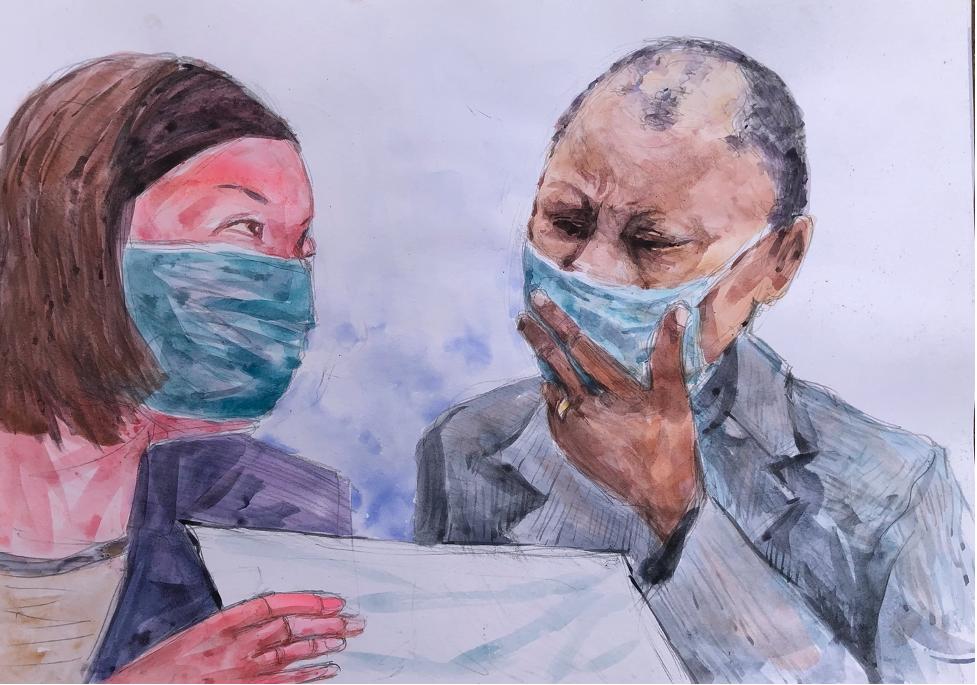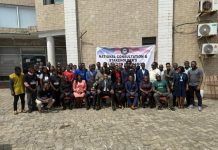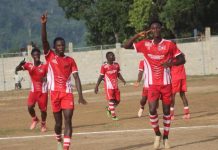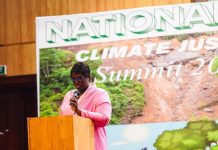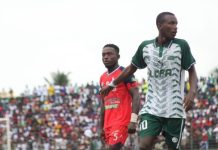Africa-Press – Liberia. A former member of the witness protection unit of the UN backed Special Court for Sierra Leone has told judges in the ongoing war crimes trial of Gibril Massaquoi, the former Revolutionary United Front commander, that the accused did not escape UN surveillance to cross over to Liberia in 2003.
The defense witness, currently a member of the Sierra Leonean Police force, said Mr. Massaquoi was under tight UN surveillance in the period in question – June to August, 2003 – and as such it was impossible for him to have escaped to take part in the Liberian civil war as dozens of Liberian witnesses have claimed. Codenamed “08” to protect him from reprisals, the witness told the court Mr. Massaquoi and his family – his wife, three children and a brother – were lodged in safe houses in Freetown from March 2003.
“Massaquoi was in the safe house in Freetown and from there, he occasionally went to the court,” 08 said. “He was always present in court when needed. No one asked to take him anywhere. He followed the rules and there was no report of him violating them.”
One of the safe houses was fenced with barbed wire and guarded by several security officers including gunmen, 08 said. He said Mr. Massaquoi occasionally went out, but always with permission from the court and only under surveillance.
The court comes from the Finnish town of Tampere where Massaquoi was living in a deal with the Special Court when he was charged in March 2020 with committing war crimes and crimes against humanity in Liberia. The court held three months of hearings in Liberia and Sierra Leone earlier in the year. It decided to return to Liberia in August to hold new hearings when it became clear that dozens of witnesses in the first hearing were referring to battles that took place in June to August 2003, outside the dates of the original indictment.
The prosecution argues Massaquoi left the safehouse to travel to Liberia where he committed crimes on behalf of then-Liberian President Charles Taylor, one of the combatants he was informing on to the Special Court. Earlier witnesses have testified that the UN surveillance was lax and that there were gaps in records of the dates that Mr. Massaquoi was monitored.
Mr. Massaquoi’s defense team is now bringing former RUF fighters and protection officers from Sierra Leone to refute the claim that surveillance was lax.
On Wednesday, a former protection officer, spent almost four hours insisting that Mr. Massaquoi was nowhere near Liberia in June to August 2003. He said Mr. Massaquoi knew that his life was in danger – from supporters of those against whom he was informing to the Special Court – and so he could not have left. He told judges that he picked up Mr. Massaquoi and his family on the court’s order in March 2003 and took them to a safe house where they stayed for a year.
Asked by defense lawyer, Kaarle Gummerus, how many people would have been aware if Mr. Massaquoi had crossed over to Liberia while under protection, 08 said it would have taken no time for the entire court to know about it.
On cross examination, lead prosecutor Tom Laitinin, highlighted several inconsistencies between the witness’s testimony in court and in statements he made to Finish police investigators in Freetown.
08 told the police that Mr. Massaquoi and his family were placed under the court’s protection in May 2003. When he heard the police recording played in court, the witness conceded he had misspoken and said the date was March 2003 blaming the misstatements on faulty memory.
The witness also told investigators that he spoke with Mr. Massaquoi on the phone in 2020, but when the prosecutor raised the issue in court, 08 denied ever speaking to the accused. When the tape was played, he was heard telling the police that he spoke with Mr. Massaquoi. In court 08 remained adamant that he had not spoken with the accused and said he may have been referring to Mr. Massaquoi’s brother when he spoke with investigators.
Dozens of witnesses have accused Mr. Massaquoi of committing human rights violations in two parts of the country: the far north eastern county of Lofa and the commercial district of Waterside, in the heart Monrovia.
Wednesday’s two other witnesses told the four-judge panel that Mr. Massaquoi did not take part in the Liberian civil war. Defense witness “07” told the court he was the last Revolutionary United Front (RUF) rebel commander to leave Liberia and at no time was Mr. Massaquoi here.
According to 07, the only high profile RUF leader to cross the Sierra Leone-Liberia border was Sam Bockarie, who fled across the border as a fugitive from the RUF. He said Bockarie was chased out of Sierra Leone by the RUF, making it impossible for Mr. Massaquoi to be his ally, as claimed by some of the witnesses.
A third defense witness, codenamed 21, refuted claims that the accused was involved in the illegal sale of cars. He said the road from Sierra Leone entering Liberia in the northern part of the country was impassable during the time Massaquoi allegedly committed the crimes, and as such, he could not have led an illegal car trade as was alleged. The trial will take a break for the rest of the week and resume on Monday.
This story was a collaboration with New Narratives as part of the West Africa Justice Reporting Project.

